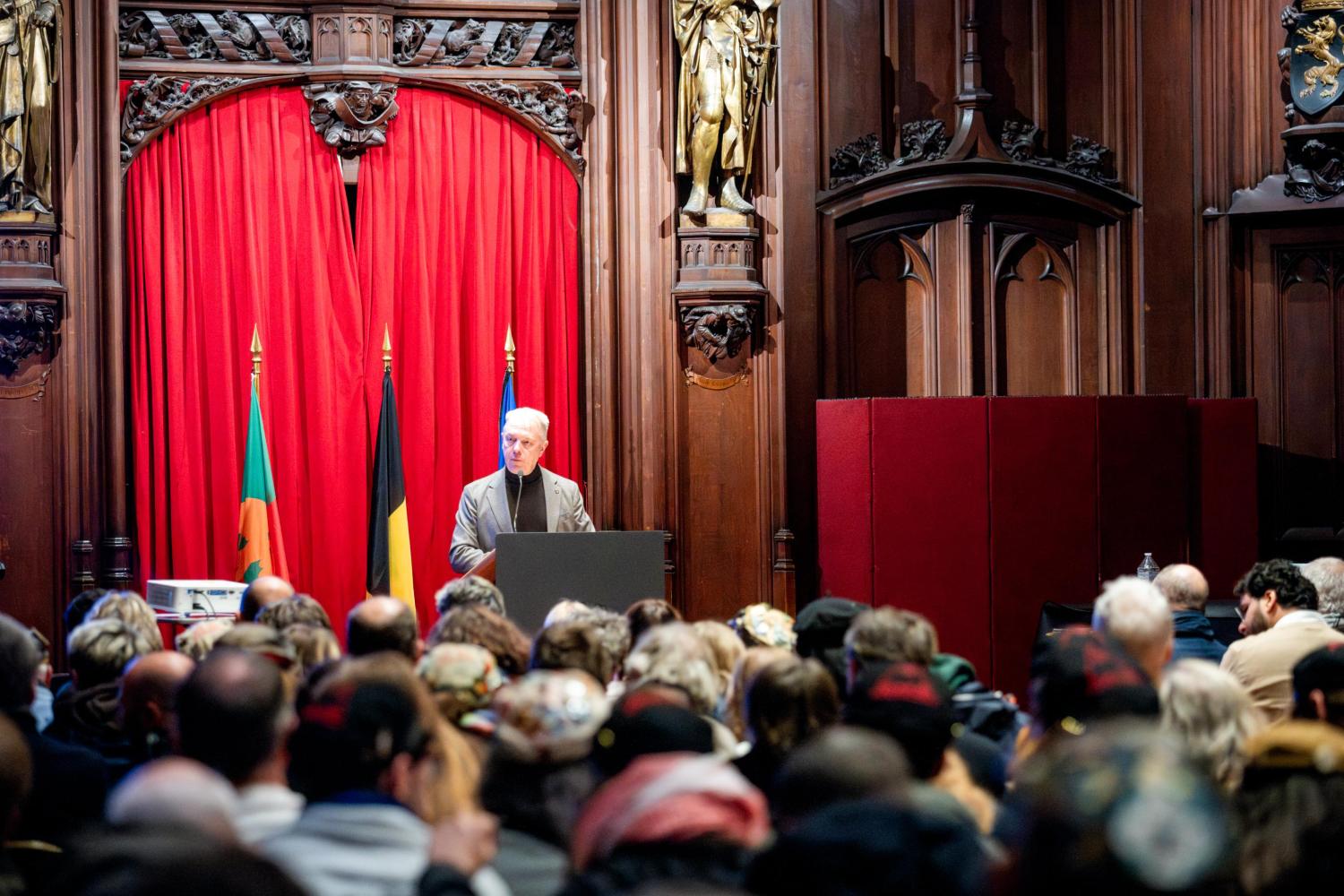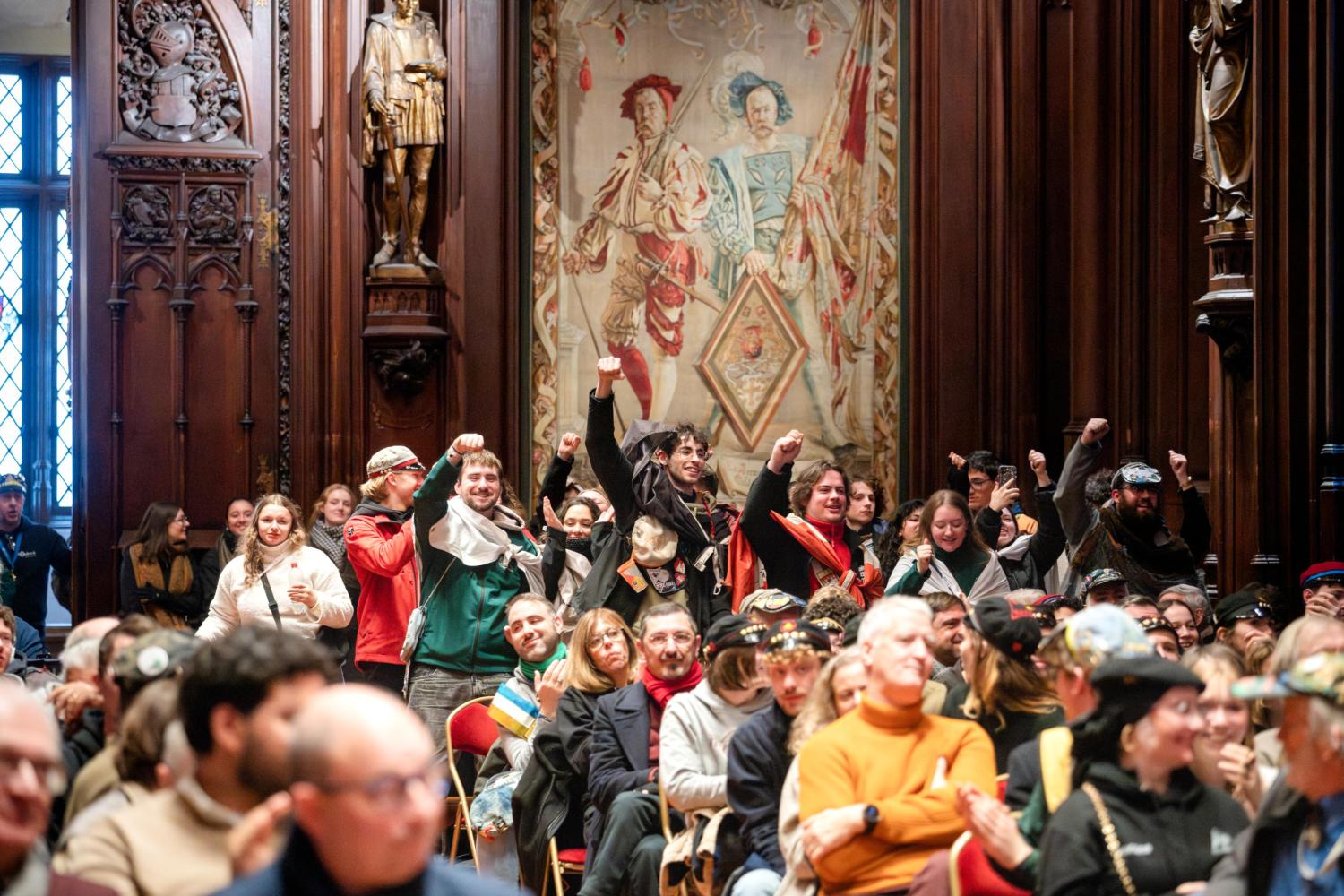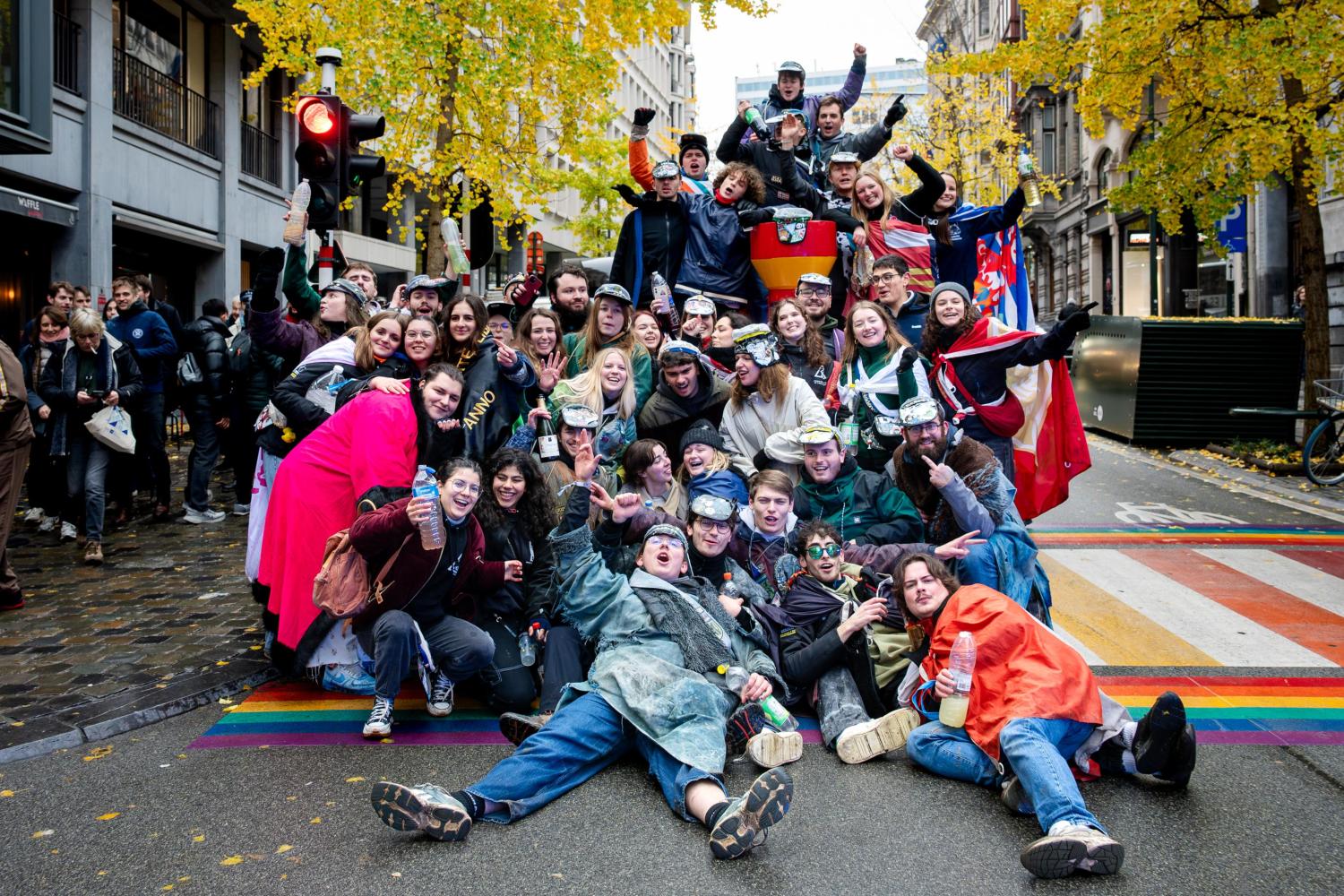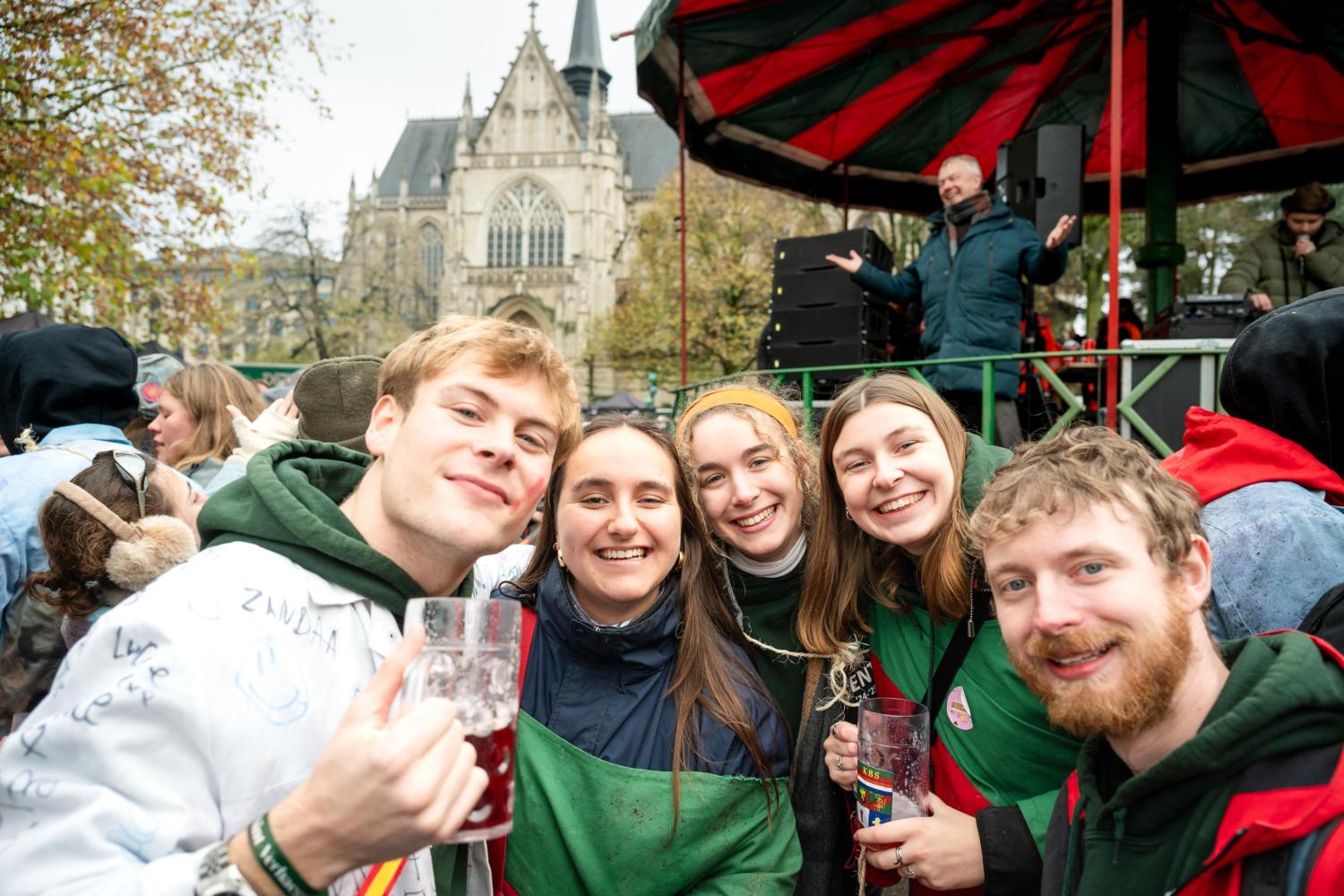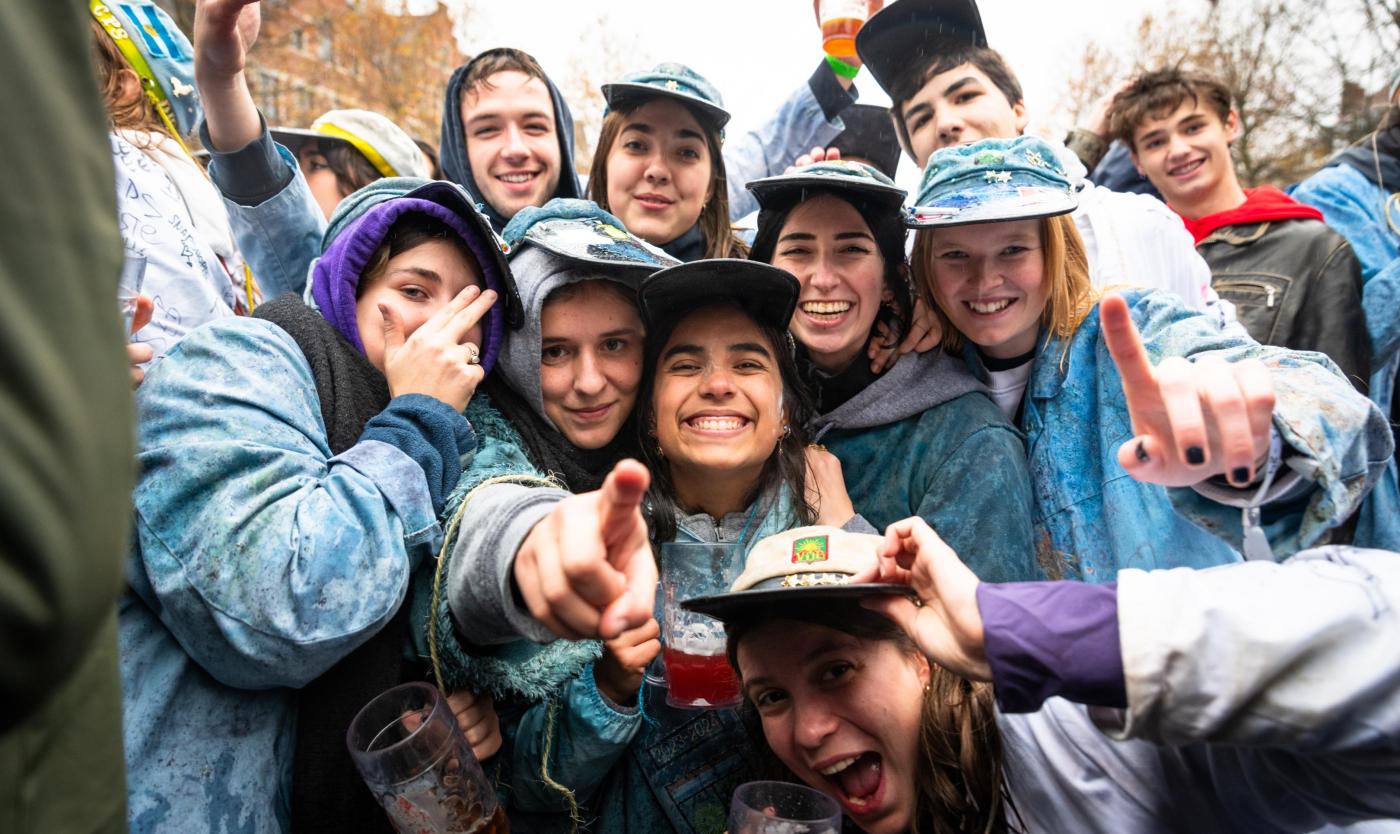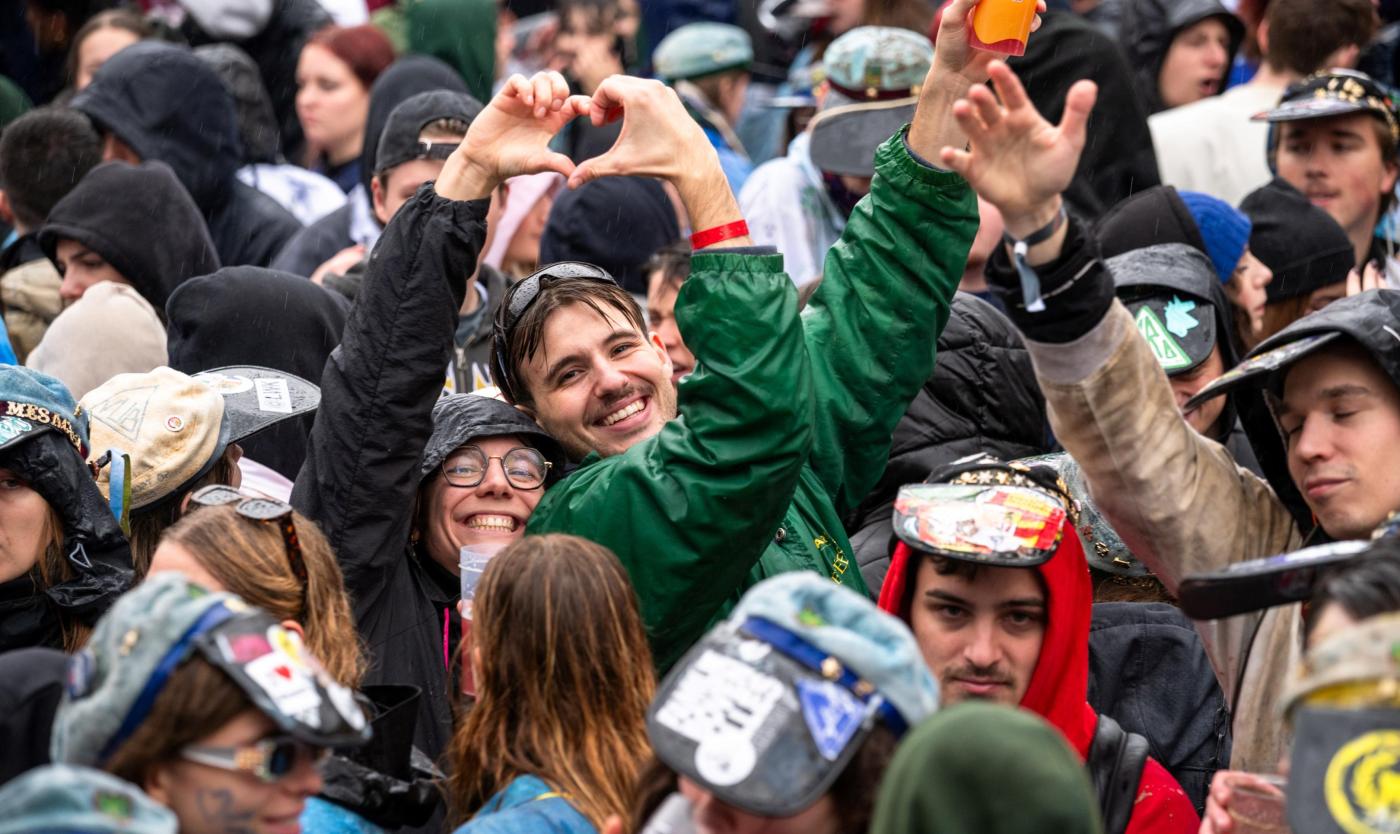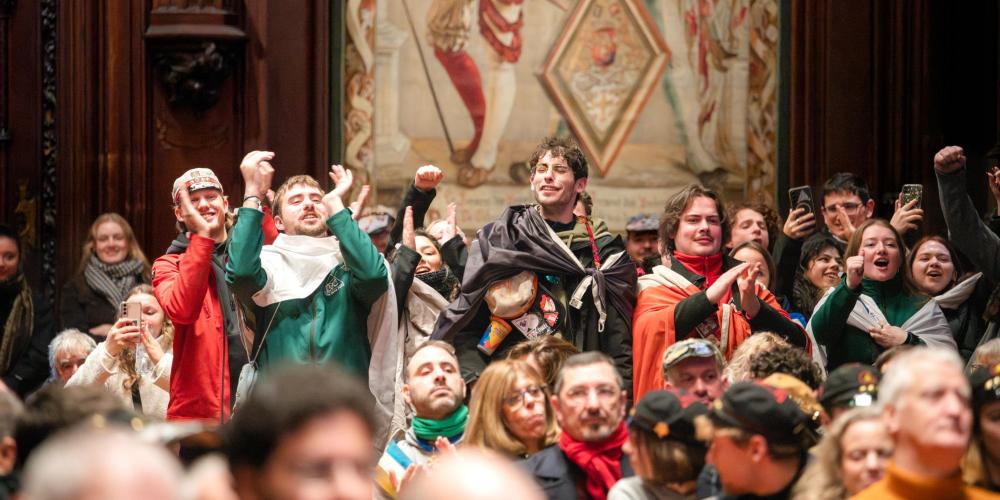
On 20 November, Brussels once again turned oranje, blanje, blue. Not just as a nod to our history, but mainly as a warning for today. This year’s St V revolved entirely around one clear call from the students: “Silence complice, fascisme en marche – Don’t look away, have your say!” A message heard from sunrise onwards, carried by tradition, reflection and a good dose of Brussels stubbornness.
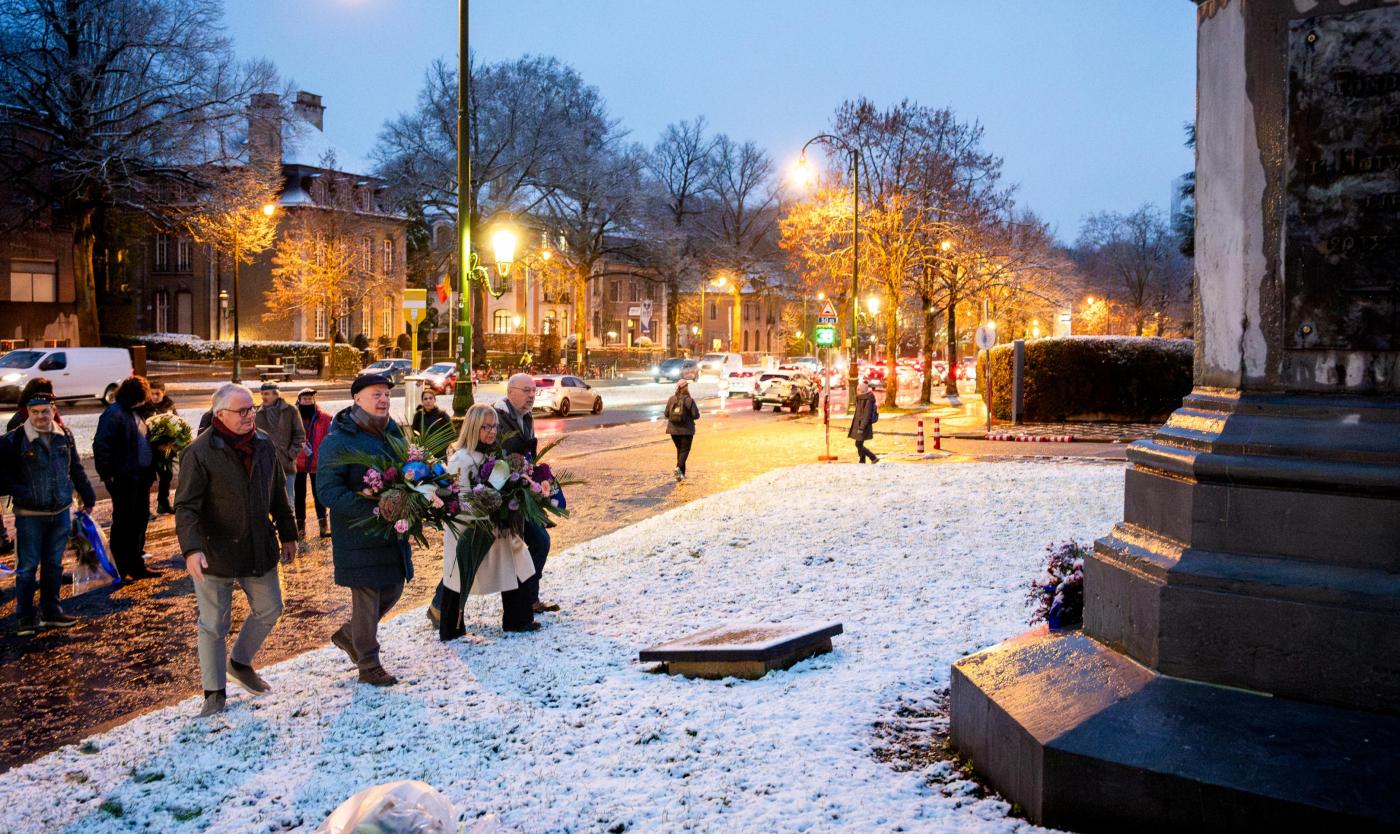
Rectors Jan Danckaert (VUB) and Annemie Schaus (ULB) during the floral tribute at the statues of Théodore Verhaegen and Francisco Ferrer
A sharp wake-up call
The day began early in the Marble Hall of the ULB. Over coffee, scarves and sleepy eyes, students, staff and alumni gathered for the first ceremonies. The floral tributes at the statues of Théodore Verhaegen and Francisco Ferrer set the tone straight away: free inquiry and free thought are not heritage pieces in a display case — they only stay alive if we keep defending them.
During breakfast, this year’s slogan was already in the air: “Silence complice, fascisme en marche – Don’t look away, have your say!” Rector Jan Danckaert brought it forward immediately in a sharp wake-up call. He pointed to the worldwide rise of authoritarianism and the danger of lies dressed up as truth:
“We see authoritarianism gaining ground everywhere, both in Europe and across the Atlantic. And what every form of authoritarianism shares is a deep disdain for objective facts, for truth. We must never go along with that, never give in”
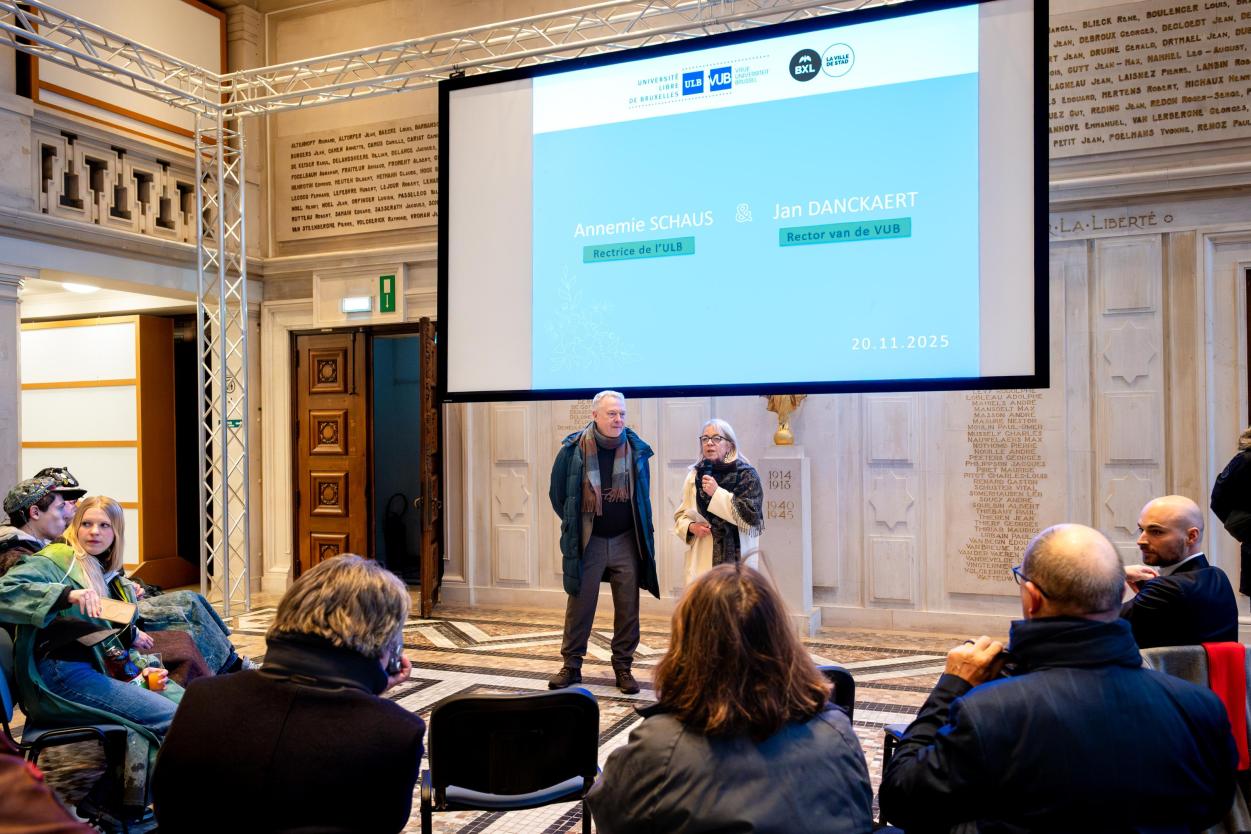
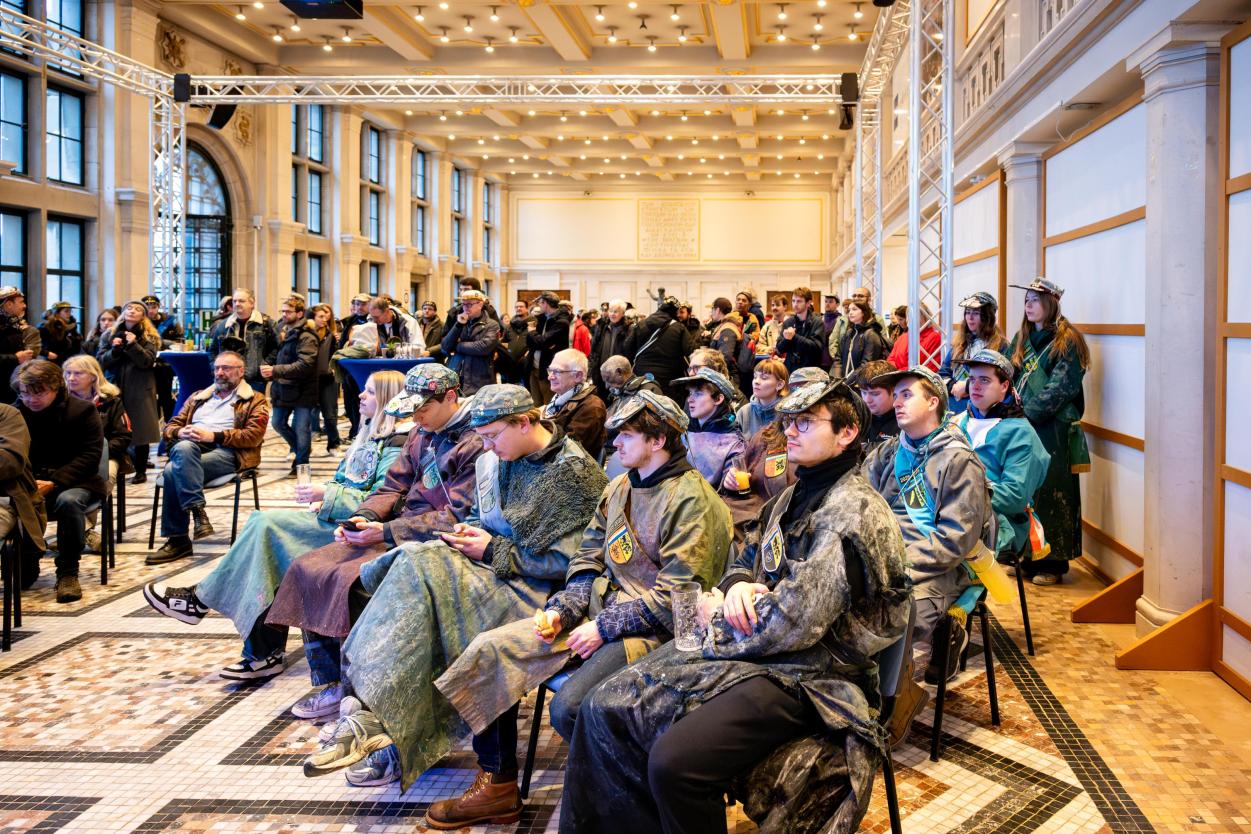
He then spoke about the budget cuts:
“The wave of cuts we’re seeing across the country shows a lack of vision. Without scientific knowledge, without free inquiry and without critical thinkers, we undermine the future of our society, our country and Brussels. Or, to put it plainly and powerfully: we oppose the cuts”
De Stap: a quiet tribute to every first step
The next tribute took place on the VUB campus at De Stap, the iconic work by Jean Bilquin. Karsten De Clerck, Chair of the VUB Board, offered a short but pointed explanation.
He noted that this sculpture is the first thing you see when entering the university — not by accident. It symbolises the new student taking their first step into the unknown — curious, but without all the answers. That’s why the figure is blindfolded: the start of an academic journey demands trust, courage and the willingness to keep searching.
It was a striking moment of recognition, also for the student representatives present. For many, St V used to be mostly a party day, but the sense is growing that the tradition carries real weight. Student presidents Lies and Fenna felt the same: “It used to be mostly drinking and partying. Now we’re here visiting statues and graves. It’s different, but it’s good to experience this side too. And yes… we’re also looking forward to heading to the Sablon later, where our friends are waiting with a pint.”
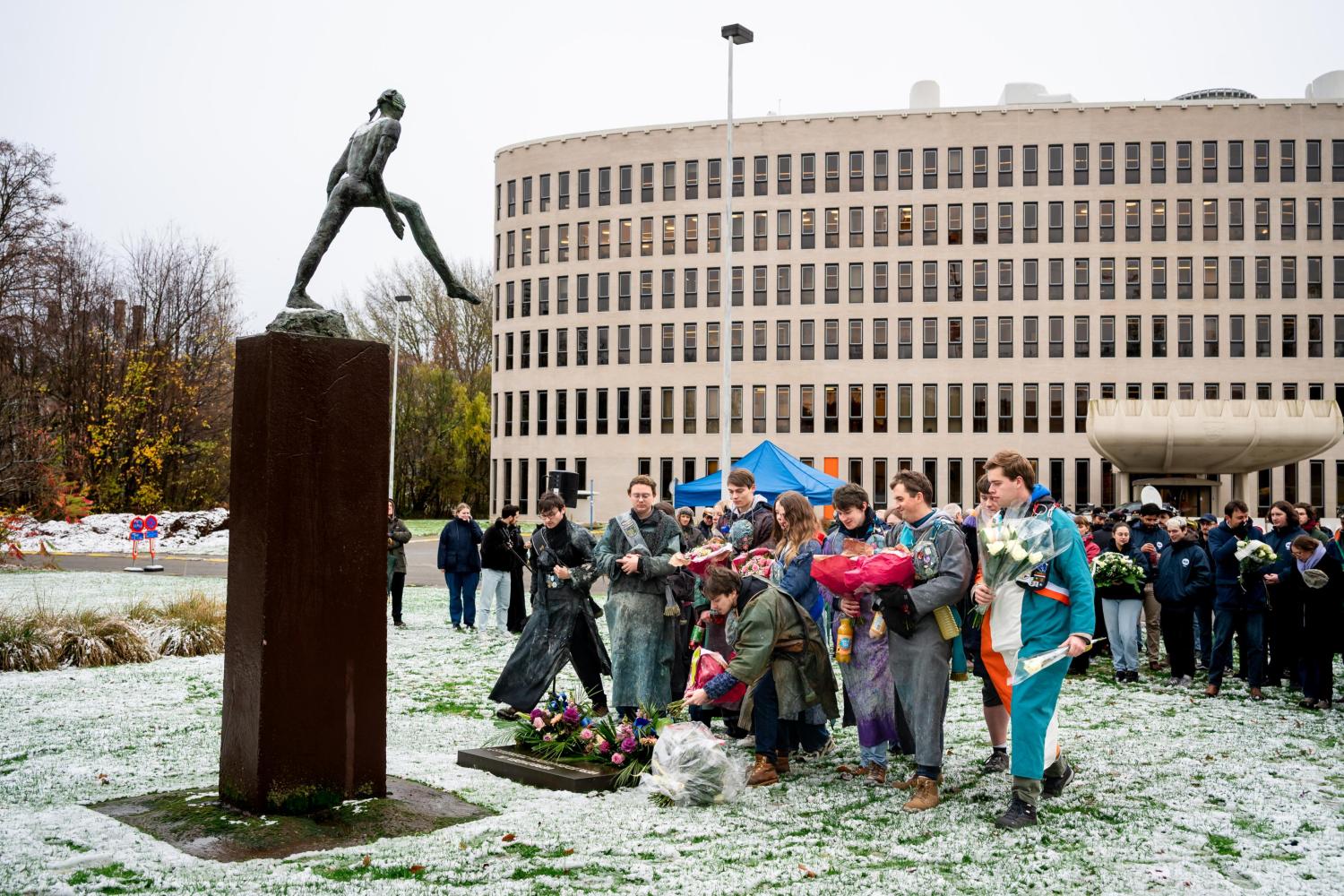
At De Stap, students, staff and alumni gather for the floral tribute and the speech by Karsten De Clerck
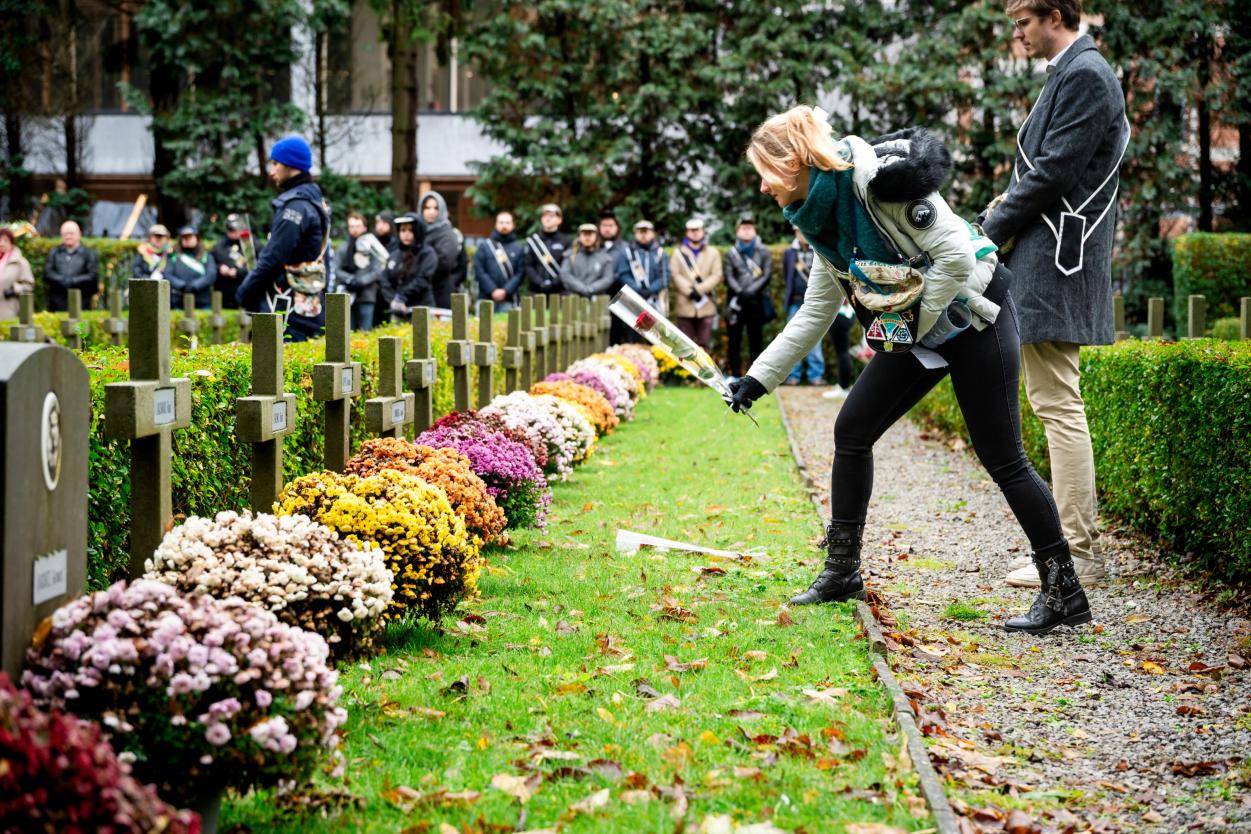
Students lay flowers in memory of those executed, an ode to the resistance fighters killed here
Remembering as protest and as a mirror
Full buses then headed to the Brussels cemetery for tributes at the graves of Verhaegen, Kufferath and Nobel Prize laureate Henri La Fontaine. Afterwards came the National Shooting Range in Schaerbeek, a place that brings silence every year.
Alumnus and VUB staff member Koen stressed that these quiet moments are more than routine: “Fascism doesn’t suddenly appear, it creeps in. Today we know better, so we have to actively push back.”
For Bob, president of Studiekring Vrij Onderzoek, St V is as much about the past as the future:
“It’s not only a day of protest, it’s also a moment of remembrance. A moment to reflect on those who used their voice before us — and sometimes paid the highest price. We hold up their mirror to see how we want to stand in society today.”
Maarten, president of BSG — the umbrella student organisation at the VUB — continued:
“St V is first and foremost protest for me, and then the safeguarding of our free-thinking spirit. We gather to defend our principles. Decisions made higher up often have a huge impact on students. We’re here to show that we have something to say — and that we will be heard.”
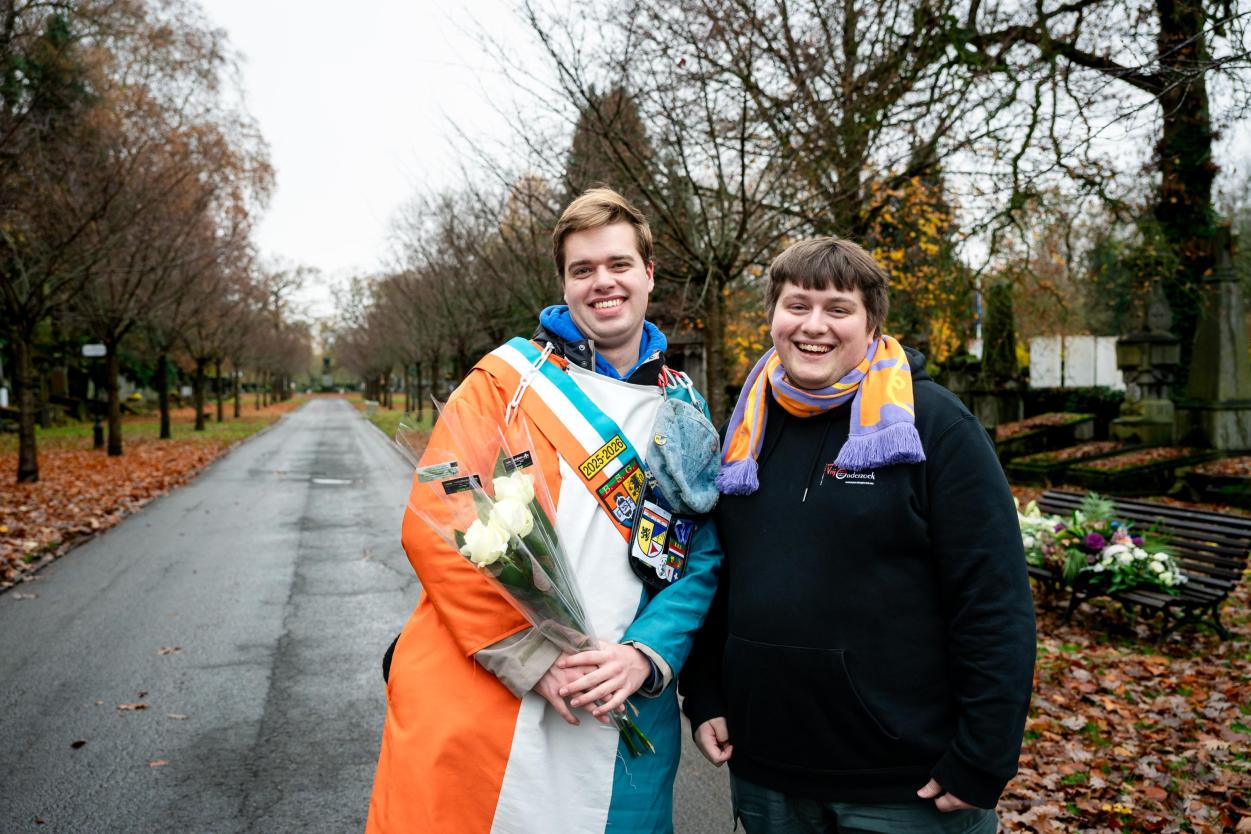
Maarten, president of BSG (left), and Bob, president of Studiekring Vrij Onderzoek (right)
Brussels makes room for the students
In the afternoon, the procession moved to Brussels City Hall for the joint VUB–ULB session, followed by the traditional Glass of Friendship. From there, the crowd made its way to the Grand Sablon, where protest found its rhythm, slogans grew louder and the square started humming with energy.
Not everyone knows the full history of St V, but that doesn’t make the day any less meaningful. One student admitted: “I don’t know anything about the tradition, but I know we’ll be dancing and that it brings us together.” Another added: “With everything happening in the world, it matters that students don’t fall silent. But we’re allowed to enjoy ourselves too.”
St V 2025 felt more urgent than previous editions. Not because the traditions changed, but because the world did. Throughout the day, one thought kept returning: silence is consent.
On the steps of the Stock Exchange, the day ended as always: with a hoarse but determined chorus for Geen Taal and Le Semeur. Thousands of voices, two free universities, one message that refuses to fade.
